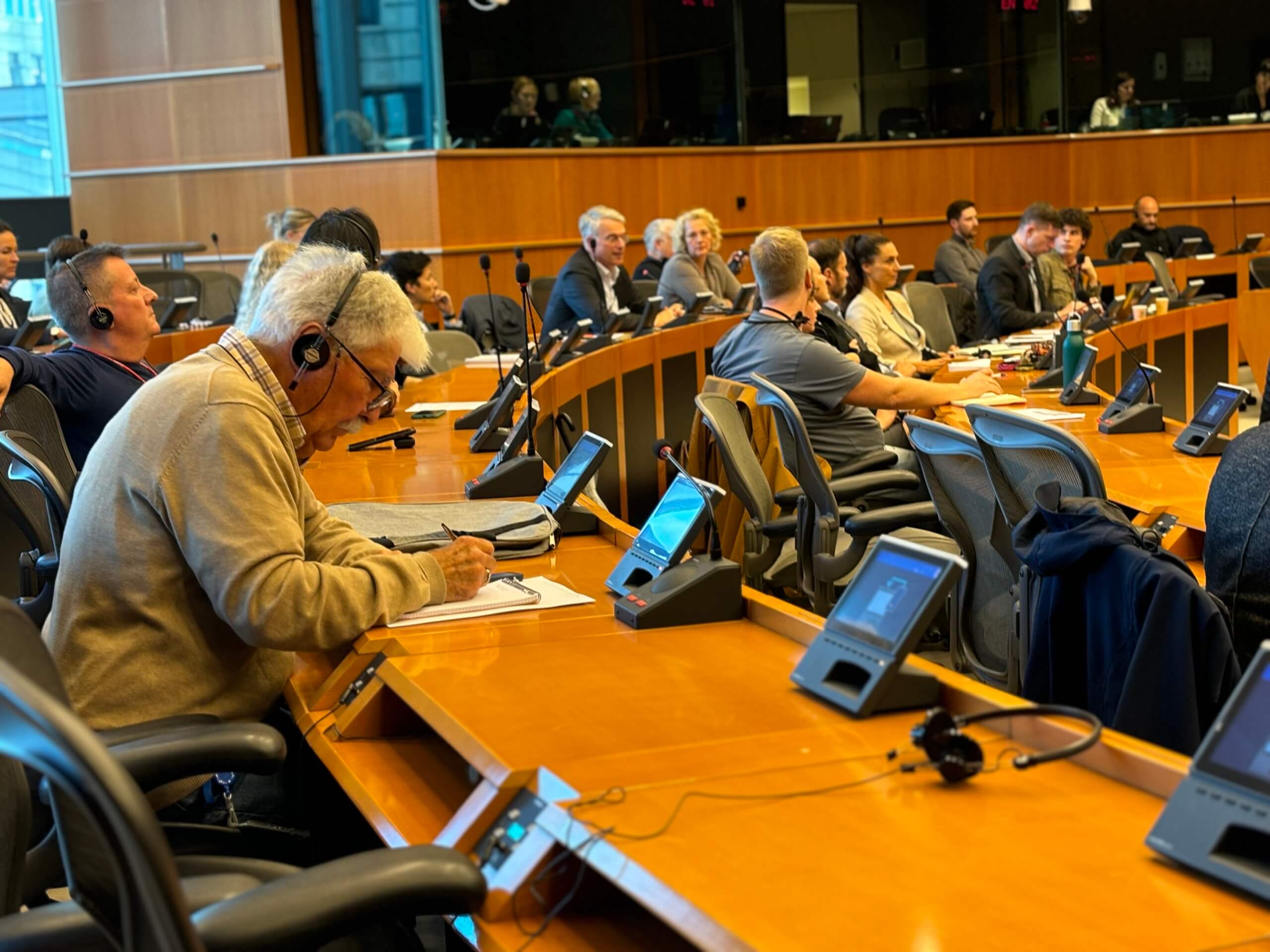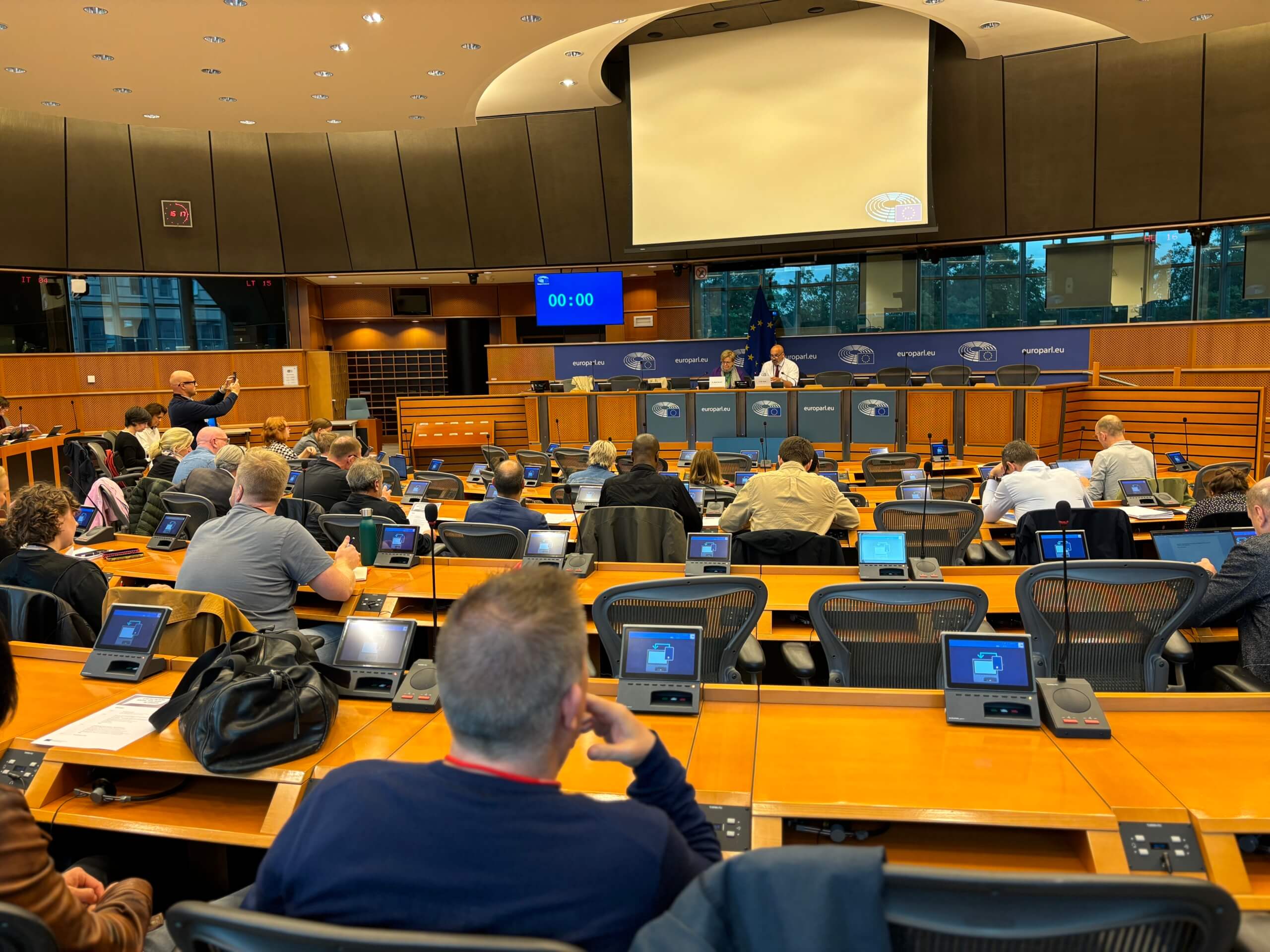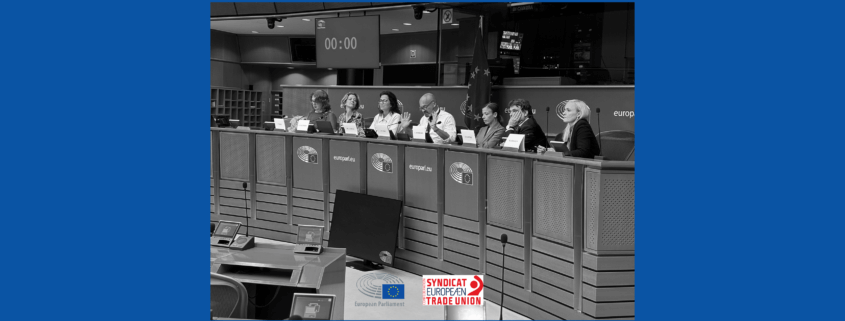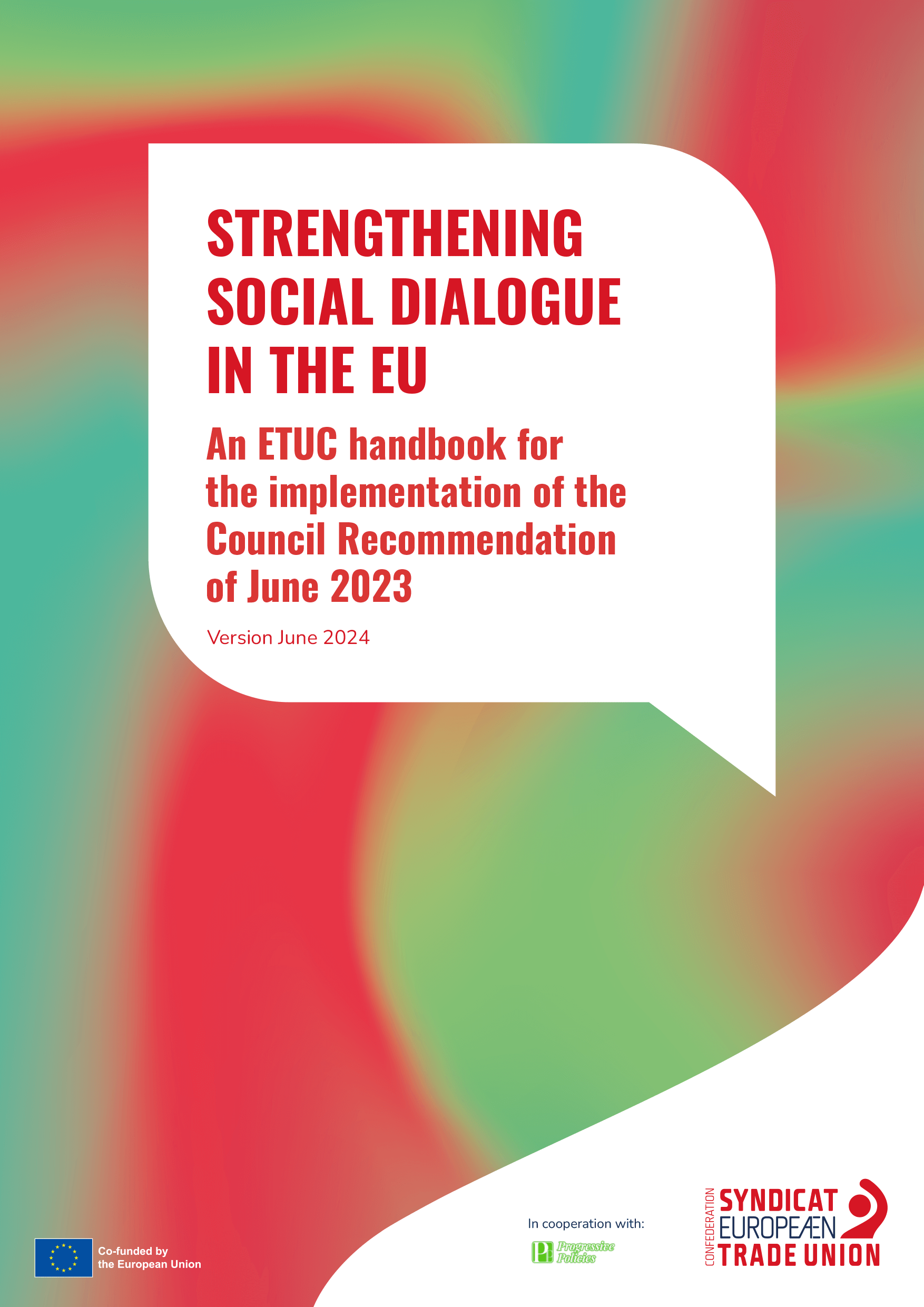European social dialogue persists amid the changing game
On September 30, 2024, the European Parliament hosted a pivotal event organised by the European Trade Union Confederation (ETUC) in partnership with the Socialists & Democrats (S&D) political group, titled “Strengthening Social Dialogue in Europe.”
The event panel gathered key representatives from the European Commission, trade unions, and political parties (excluding the European People’s Party and the far-right).
Notably, CEC European Managers, representing over one million managers across 15 countries, was also invited, highlighting its role as key social partner of the European Commission and official communication partner of the European Parliament.
The event provided a platform for ETUC to present its latest handbook, “Strengthening Social Dialogue in Europe: Handbook to the implementation of the Council Recommendation of 12.06.2023” and to foster debate on the role of social dialogue in achieving a balance between competitiveness, transition, and collective bargaining.
Political figures, such as MEPs and trade union leaders, and Olga Molina Tomey, Director of CEC European Managers, attended the event.
A strong call (and discussion) for Social Dialogue
Gabriele Bischoff, MEP from the S&D party, opened the session by reaffirming the importance of social dialogue as a cornerstone for fostering unity across Europe. “We welcome Social Dialogue and are willing to see it more widely spread across the European Union” she said, acknowledging its crucial role in bridging gaps between employers and employees.
Claes-Mikael Ståhl, ETUC’s Deputy General Secretary, expressed concerns about the rise of the extreme right, which he described as “deeply disturbing,” adding that it “poses significant challenges for trade unions and social dialogue.”
The discussion also included perspectives from various European countries. Piotr Ostrowski, Chairman of OPZZ in Poland, pointed out that while social dialogue is enshrined in the Polish Constitution, the current government is “doing the minimum” and does not view it as essential.
He emphasized the need for long-term policies that build capacity and demonstrate the benefits of collective agreements for social cohesion and economic stability.
In Finland, social dialogue has historically been robust, but Pekka Ristelä of The Central Organisation of Finnish Trade Unions (SAK) noted that Finnish decision-makers are gradually losing this practice. “Finland used to be an example, but lately we are not heard by politicians as we used to be,” he remarked.
We welcome Social Dialogue and are willing to see it more widely spread across the European Union
Gabriele Bischoff
Group of the Progressive Alliance of Socialists and Democrats in the European Parliament, Vice-Chair
In Italy, the situation is similarly challenging, according to Davide Corino from Italian Labour Union (UIL). “Legislation is increasingly going against trade unions and collective bargaining,” he explained, pointing out that the intertwining of social dialogue with politics in Italy creates a “dangerous mix” to what Claes-Mikael Ståhl replied “social dialogue doesn’t happen in the void.”

Jean Lapeyre, one of the founders of EU Social Dialogue and a supporter of managers’ and leaders’ roles.
The Future of Social Dialogue in the EU
Maria Luisa Cabral, Director of DG Employment at the European Commission, projected an optimistic future for social dialogue. “In the next EU Commission, social partners will be more involved in ensuring quality jobs.”
Social dialogue doesn’t happen in the void.
Claes-Mikael Ståhl
ETUC’s Deputy General Secretary
She reiterated that collective bargaining is a key tool explicitly mentioned in the mission letters sent by EU Commission President Ursula von der Leyen, promising “implementation, implementation, and implementation.”
Concerning these mission letters, the debate revolved around the (few) tasks associated with social affairs and how Von der Leyen had diluted the various portfolios among the newly appointed Commissioners.

Li Andersson, MEP and Chair of the European Parliament EMPL Committee, agreed on the importance of implementing the EU Commission‘s commitments but highlighted the need for continuous follow-up, saying, “I appreciate the commitment to implementation from the EU Commission, but we also need follow-up.”
She cited the success of the minimum wage directive as a positive example but cautioned against complacency. She explained a particular instance of resistance from businesses like Tesla, which she visited in Sweden a few days ago, and criticized Elon Musk‘s companies for not engaging in collective bargaining.
Estelle Ceulemans of the S&D party highlighted the absence of explicit mention of social dialogue in many mission letters. In fact, social dialogue is only mentioned in the Executive Vicepresident Designate for People, Skills, and Preparedness Roxanna Mînzatu‘s mission letter (you can find more information about it here). She noted that while competitiveness is often prioritized, as seen in the Draghi report, social dialogue is equally essential for a successful transition.
Ceulemans pointed to examples like Belgium’s Delhaize supermarkets, which were franchised to avoid trade union presence, as businesses evaded social responsibilities.

ETUC Strengthening Social Dialogue in the EU – EU Parliament event
The need for a just transition
The conversation also concerned ensuring social equity in Europe’s green and digital transitions.
Maria Ohisalo, MEP from the Greens, stressed that “poor people don’t protest against climate change” and emphasized the need for a “just transition” considering social elements.
Poor people don’t protest against climate change
Maria Ohisalo
The Greens, MEP
She argued that public support for the green transition could falter without a solid social component. Ohisalo also highlighted the importance of addressing Artificial Intelligence‘s role in creating workplace inequalities.
She suggested that the EU Commission could use more competences. For example, “the European Commission has competence in key aspects such as housing, which is perhaps the biggest threat to the younger generation’s future. Von der Leyen herself said cohesion funds could be used to face this enormous challenge,” said Ohisalo.
Jana Toom, MEP from Renew Europe, warned of diverging realities between the EU and national states, noting examples like Estonia, where trade unions and social dialogue are perceived as a soviet legacy and recent strikes in the educational sector were seen as destabilizing forces, especially in the context of the war in Ukraine. “There’s no just transition without social dialogue,” Toom concluded.
As Europe faces the dual challenges of economic competitiveness and social equity, CEC European Managers‘ involvement as a social partner remains essential.
Social partners will remain vigilant to ensure that the collaboration and work between the EU Commission and the European Parliament are fruitful and consistent and that the promises and tasks to which the new European representatives have committed themselves are carried forward.
The idea of European social dialogue is that shared decision-making benefits society as a whole and seeks improvements in the lives of European Union citizens.
With the promise of a more engaged and collaborative future, the next five years are set to test the strength and adaptability of social dialogue in delivering for all European citizens.
The road ahead is not without obstacles, but as Claes-Mikael Ståhl emphasized, with a strong focus on competitiveness, “the game is changing, and we have to find our place in this moving framework, ensuring we stand up for social dialogue.”





